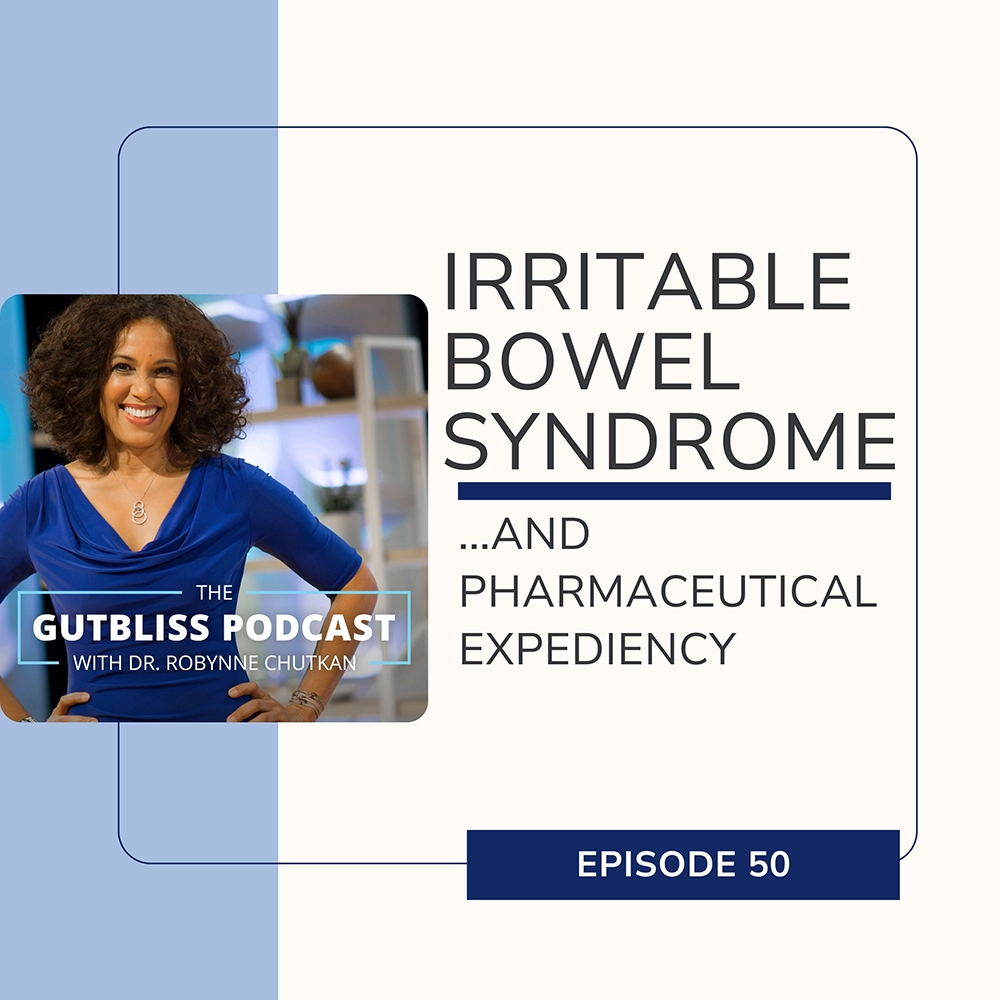We know that good sleep is essential – but it can also be hard to achieve. I’m going to tell you about an alternative pathway to better sleep that you might not have considered: your digestive tract. In this episode, I’m going to explain how your gut directly impacts melatonin production, and how that in turn affects your sleep.
Thank you for being a part of our community! For the latest in digestive wellness go to https://gutbliss.com/ and follow us on Instagram for more gut health info.
On today’s show, the big-three you can’t live without are food, water, and sleep. If you decide to go on a fast and don’t eat food for seven days, at the end of the week you’ll definitely be hungry, and you’ll probably feel weak and shaky, but you won’t have any short or long-term ill-effects. Not drinking water for seven days will lead to a worse outcome – you’ll be severely dehydrated and some of your organs may even start to shut down, but once you rehydrate you’ll likely make a full recovery. If you try the same experiment with sleep, at the end of the week your coronary arteries will have hardened, putting you at increased risk for a heart attack, your likelihood of developing Alzheimer’s will have gone up, and your glucose levels will probably be in the pre-diabetic range. If you’re a man, your testosterone levels will have dropped – which can age you by as much as a decade, and if you’re a reproductive-aged woman, you’ll be significantly less fertile. Your cancer-promoting genes will be turned up, and your helpful immune-regulating ones will be turned down – not to mention you’ll be depressed and completely non-functional.
In addition to all of that, sleep deprivation also dramatically increases your risk for coming down with an infection. A study published in the British Medical Journal found that people who are regularly sleep deprived have an 88% greater risk of contracting COVID. That’s not a coincidence. It’s your immune system struggling because it’s not getting the sleep it requires. While you sleep, your immune system produces infection-fighting antibodies and cytokines that help protect you from pathogens. Not enough sleep cripples your immune system, decreasing its ability to fend off invaders, and making it harder for you to recover. Sleep is so critical to health that in 1996, the Guinness Book of World Records stopped accepting records for sleep deprivation because it was so harmful, and Amnesty International classifies sleep deprivation as a form of torture.
So we know that good sleep is essential – but it can also be hard to achieve. You may have done all the things: blackout shades, chamomile tea, calming music, a warm bath, no screens before bed. You may even have tried counting sheep – and you still cannot get a good night’s sleep. I want to tell you about an alternative pathway to better sleep that you might not have considered. It’s in your digestive tract. Instead of focusing on how to turn off your brain to help you get a good night’s sleep, I want you to think about how you can activate what’s going on in your gut. And the first thing that you need to know about the connection between your gut and your sleep has to do with the sleep hormone melatonin. When we come back, I’m going to explain how your gut directly impacts melatonin production and how that affects your sleep.
Here’s how it works: as it gets darker, your eyes sense less light and send a message to your brain via your optic nerve that night is coming. In response, your brain increases melatonin secretion to make you sleepy. And that’s why darkness is so essential for falling asleep – because it triggers melatonin secretion. In the morning, the opposite happens: as it gets lighter, melatonin secretion decreases, and you wake up. So darkness is important for falling asleep, and light is important for waking up. And for it all to work properly, you need to have adequate production of melatonin.
And this is where the gut comes in. Melatonin is made from a precursor hormone called serotonin. You may have heard serotonin referred to as the “feel-good hormone” because of its positive effect on mood and feelings of well-being. 90% of the total serotonin in our body is made in our GI tract. Gut bacteria are intimately involved in serotonin production, which ties your gut microbiome into the sleep equation. Low microbial diversity in the gut is associated with low serotonin production, which can lead to low melatonin production, which is associated with disordered sleep. High diversity and richness in the gut microbiome is associated with increased serotonin production, increased melatonin production, and improved sleep quality.
So how do you make sure you have adequate serotonin levels to make enough melatonin? Two ways: The first is to make sure you’re eating the right foods that promote production. Both serotonin and melatonin are made from the amino acid tryptophan, which is an essential amino acid, meaning your body can’t make it on its own, and you need to get it from food. The 2nd way to ensure adequate melatonin is to make sure you are not disrupting your gut microbiome, since that’s where serotonin, the precursor to melatonin, is made. What are the things that disrupt your microbiome? Well, this is a long list, but my top 3 are: 1) excessive antibiotics, 2) ultra-processed food, 3) not enough fiber.
When we talk about the gut-brain axis, we’re referring to communication pathways between your gut and your brain, where key signals are passed back and forth. Those pathways are also heavily influenced by the health of your gut. An imbalanced, disrupted microbiome can produces metabolites that cause inflammation in the brain. These neuroinflammatory products can travel from your gut to your brain and in addition to affecting things like mood and memory, they can also negatively affect your sleep. A healthy gut microbiome produces much fewer neuroinflammatory products, so it’s much less likely to disrupt your sleep.
We’ve been spending a lot of time talking about disrupted sleep so let me just remind you how much sleep we actually need to stay healthy:
· Babies and toddlers need a lot so they can process all the new things they’re learning every day – they usually spend more than half their time sleeping
· School-aged kids require between 9 and 11 hours
· Teens should aim for 8 to 10 hours
· Adults need between 7 and 9 (which only 2/3 of Americans are getting)
So now that you know how important sleep is, how much you should be getting, and the close relationship between a healthy GI tract and good sleep, let me share 5 of my favorite gut based tips for better sleep:
1.EAT SOME TRYPTOPHAN: Remember, tryptophan is one of the main ingredients in serotonin and melatonin and because it’s an essential amino acid, your body can’t produce it on its own and you have to get it from food. For plant sources I recommend peanuts, pumpkin seeds, sesame seeds, tofu, and unprocessed nongenetically modified soy. And for animal sources: chicken, eggs, fish, turkey.
2.TRY SOME FERMENTS: Fermented foods like sauerkraut and kimchi contain 3 important ingredients: prebiotics (fiber to feed your gut bacteria); probiotics (bacteria that are produced during the fermentation process), and postbiotics (metabolites created during fermentation). These foods can dramatically improve the health of your microbiome, which can help boost serotonin and melatonin production.
3.LIMIT ALCOHOL: I know you already know this, but I’m going to tell you again: alcohol doesn’t make you sleepy, it sedates you, and sedation and sleep are not the same thing. Plus, alcohol is bactericidal – which means it kills off bacteria – including the healthy ones in your gut. Alcohol is a major sleep disruptor, so if you’re trying to establish a good sleep routine, reducing, or avoiding alcohol is key.
4.DRINK TART CHERRY JUICE: Tart cherries contain tryptophan and anthocyanins, two compounds that help the body create melatonin and lengthen its effects. Research shows that supplementing with tart cherry juice increases levels of melatonin and helps improve both sleep quality and duration. In one study published in the American Journal of Therapeutics where people suffering from insomnia drank either 16 ounces of tart cherry juice or the same amount of a placebo juice every day for two weeks, sleep time increased by an average of 85 minutes in the cherry juice group. That’s much more impressive than most sleep supplements. By comparison, a 2022 review of 11 studies that looked at taking melatonin before bed showed a decreased sleep latency of 3 minutes and increased total sleep time of about 30 minutes. If you’re trying to cut back on alcohol, think about substituting a little tart cherry juice for that glass of wine.
5.EAT EARLY: Digestion is a really active process that involves increased blood flow, lots of muscular contractions in the smooth muscles of the intestines, and enzymatic secretion from organs like the pancreas, liver, and gall bladder. All that activity can stimulate you and keep you awake. Eating too close to bedtime can also lead to heartburn, which can also keep you up. If you’re trying to get a good night’s sleep, I highly recommend finishing dinner at least three hours before bedtime and avoiding heavy meals at night.
There’s no shortcut or hack that can replace a good night’s sleep you have to actually put in the hours. But the beauty of sleep is that it’s within your grasp, even if you’ve been a poor sleeper your entire life. And one of the best ways to access good sleep is through your gut!
I want to leave you with 3 key things to remember about the connection between your gut and your sleep:
1. Remember that melatonin-serotonin connection, and the importance of a healthy gut microbiome for good sleep
2. If you’re going to snack at night, think about eating foods high in tryptophan like peanuts and pumpkin seeds, and also consider a little tart cherry juice which has been scientifically shown to help promote better sleep.
3. Digestion is an active process that can disrupt your sleep, so an early dinner, a light dinner, or even better, an early light dinner can be a gamechanger when it comes to getting a good night’s sleep
So that’s it for this edition of the Gutbliss podcast on the gut-sleep connection. For more resources on how a healthy gut can help you sleep better, check out our blog posts.









